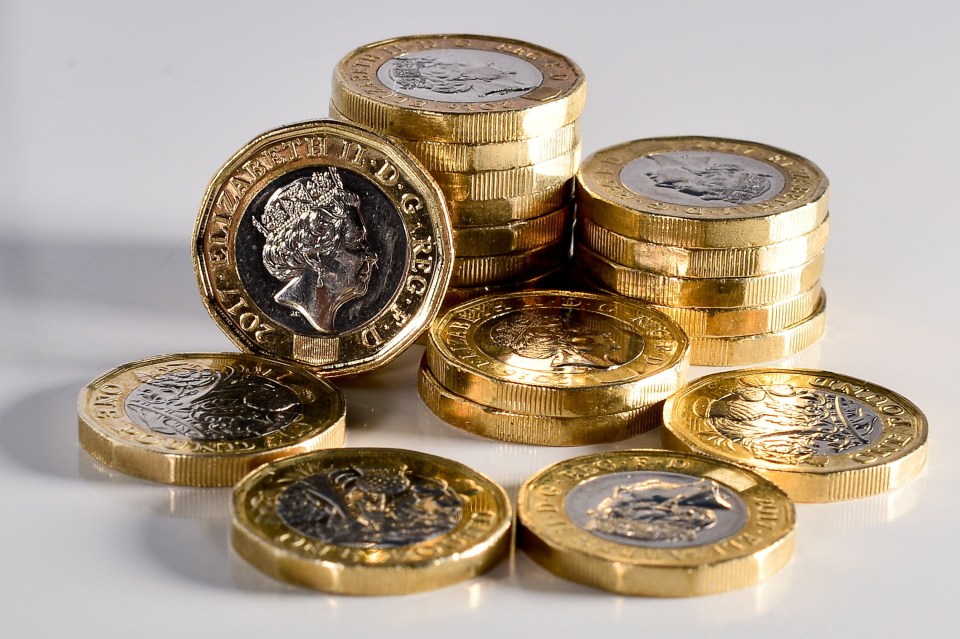MOST of us dream of retiring with £1million in the bank – but with a bit of careful planning, you could make it a reality.
There are 4,850 Isa millionaires in the UK, according to official figures.
The wealthiest 25 of this group have a staggering £8.8million stashed away in ISAs, HM Revenue and Customs revealed in a freedom of information request made by savings app Plum.
If you want to become an Isa millionaire yourself, the best trick is to save little and often.
It is also a good idea to start to save as early as possible to benefit from compound interest.
This is when you earn interest on both the money you have saved and the interest you have already earned.
If you plan to save money for a long time, it could make sense to invest it in the stock market.
Money that is invested has historically tended to grow at a much faster rate than cash savings.
Investments can go up and down, though, so you are at risk of losing money if you invest it.
But if you invest in the market over a longer period, then there is more time to even out the ups and downs from short-term volatility.
You may also get a dividend payment in exchange for investing in a company or a fund.
Plus, if you keep your money in an Isa then you do not need to pay tax on any of the interest you earn.
What is an Isa?
Individual savings accounts (Isas) are a type of tax-free savings account.
You can save up to £20,000 into the account each year.
There are two types of Isa – cash or stocks and shares.
As its name suggests, cash Isas let you hold your money in cash, which can be helpful if you are saving for a specific goal such as a house deposit or new car.
They are a good alternative to a basic savings account if you want to save a large sum.
This is because you may have to pay tax on the interest you earn from your savings.
Basic rate taxpayers need to pay tax on any interest they earn from their savings once it exceeds £1,000 a year.
Higher rate taxpayers can earn £500 in interest before they need to pay tax, while additional rate taxpayers pay tax on all interest they earn.
In comparison, stocks and shares Isas invest your money in the stock market.
They can be a good idea if you are trying to build wealth for the long term, such as for retirement or private school.
How much do I need to save?
The earlier you start to save, the easier it is to build up a large pot.
For example, if you save just £200 a month from the age of 21 then you would become an Isa millionaire by the time you are 71.
In total you would have saved £120,000, but you would earn an enormous £880,000 in interest.
But starting later does not mean you cannot become a millionaire.
If you put away £500 a month from the age of 33 then you would have £1million by the time you are 71.
But starting later means that you will need to save more of your own money to reach the £1million mark.
Starting to save just 12 years later would mean that you would need to save £228,000 of your own money.
This is £108,000 more than if you began earlier.
Meanwhile, if you began to save at 49 then you would need to put away an eye-watering £1,666 a month to become a millionaire by 71.
You would have 22 years to build your nest egg and would end up putting away £439,000 of your own money.
In total you would earn £571,000 in interest.
This is three times more than if you started saving at 21.
Rachel Springall, finance expert at Moneyfactscompare.co.uk, said: “It is possible to become an ISA millionaire, but it will require a strict savings regime, and consumers will need to be vigilant to watch out for stock market volatility or rate cuts.”
Can I make my child a millionaire?
It is also possible to make your child a millionaire if you start to save as soon as they are born.
A Junior Isa is similar to an adult account but you can only pay in up to £9,000 a year.
The account becomes an adult Isa once your child turns 18.
If you are able to pay in the full allowance each year, and your child continues to pay into the account when they are an adult, then they would become a millionaire by the age of 60.
This assumes that their savings do not grow in this period and there are no changes to the maximum amount that can be paid into the account.
If the savings grow in this period then your child could become a millionaire at a much younger age.
Roger Clarke, Partner at The Private Office, said: “If your parents or grandparents set you up with a Junior ISA (JISA), you’ve got a head start.
“The growth of your contributions will depend upon the funds chosen and higher risk funds should, over the long term, produce higher returns.”
How do I save?
The best way to build a nest egg is to save consistently.
Try and put money away each month if you are able to.
Pay into your savings account at the start of each month so you are not tempted to spend it.
If you get a pay rise then add the extra money you earn to your account so you do not get accustomed to it entering your account.
You should also make a budget so you know that you have enough money to pay for your bills.
Always build up a rainy day fund for unexpected emergencies such as a new boiler or car before you begin to invest.
You should also pay off any debt you may have before you start investing.
If you want advice on how to invest then speak to an independent financial adviser.
You can find one by visiting unbiased.co.uk.
If you choose to invest yourself then make sure you have a diversified portfolio.
This means that you spread your investments across different stocks, bonds, alternative investments, sectors, companies and regions.
Doing this ensures that you are not badly hit if something goes wrong in one sector.
How you can find the best savings rates
If you are trying to find the best savings rate there are websites you can use that can show you the best rates available.
Doing some research on websites such as MoneyFacts and price comparison sites including Compare the Market and Go Compare will quickly show you what’s out there.
These websites let you tailor your searches to an account type that suits you.
There are three types of savings accounts fixed, easy access, and regular saver.
A fixed-rate savings account offers some of the highest interest rates but comes at the cost of being unable to withdraw your cash within the agreed term.
This means that your money is locked in, so even if interest rates increase you are unable to move your money and switch to a better account.
Some providers give the option to withdraw but it comes with a hefty fee.
An easy-access account does what it says on the tin and usually allow unlimited cash withdrawals.
These accounts do tend to come with lower returns but are a good option if you want the freedom to move your money without being charged a penalty fee.
Lastly is a regular saver account, these accounts generate decent returns but only on the basis that you pay a set amount in each month.
Do you have a money problem that needs sorting? Get in touch by emailing money-sm@news.co.uk.
Plus, you can join our Sun Money Chats and Tips Facebook group to share your tips and stories








